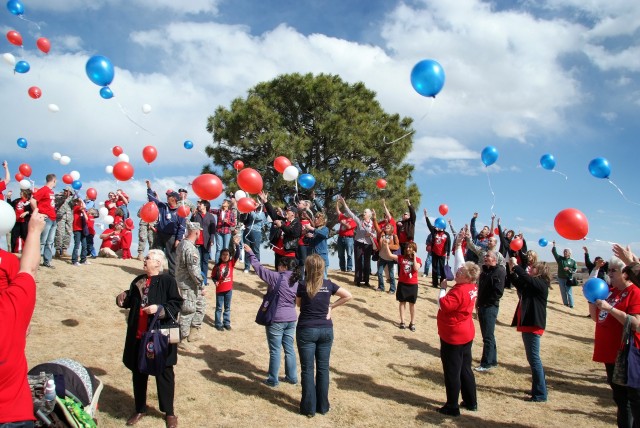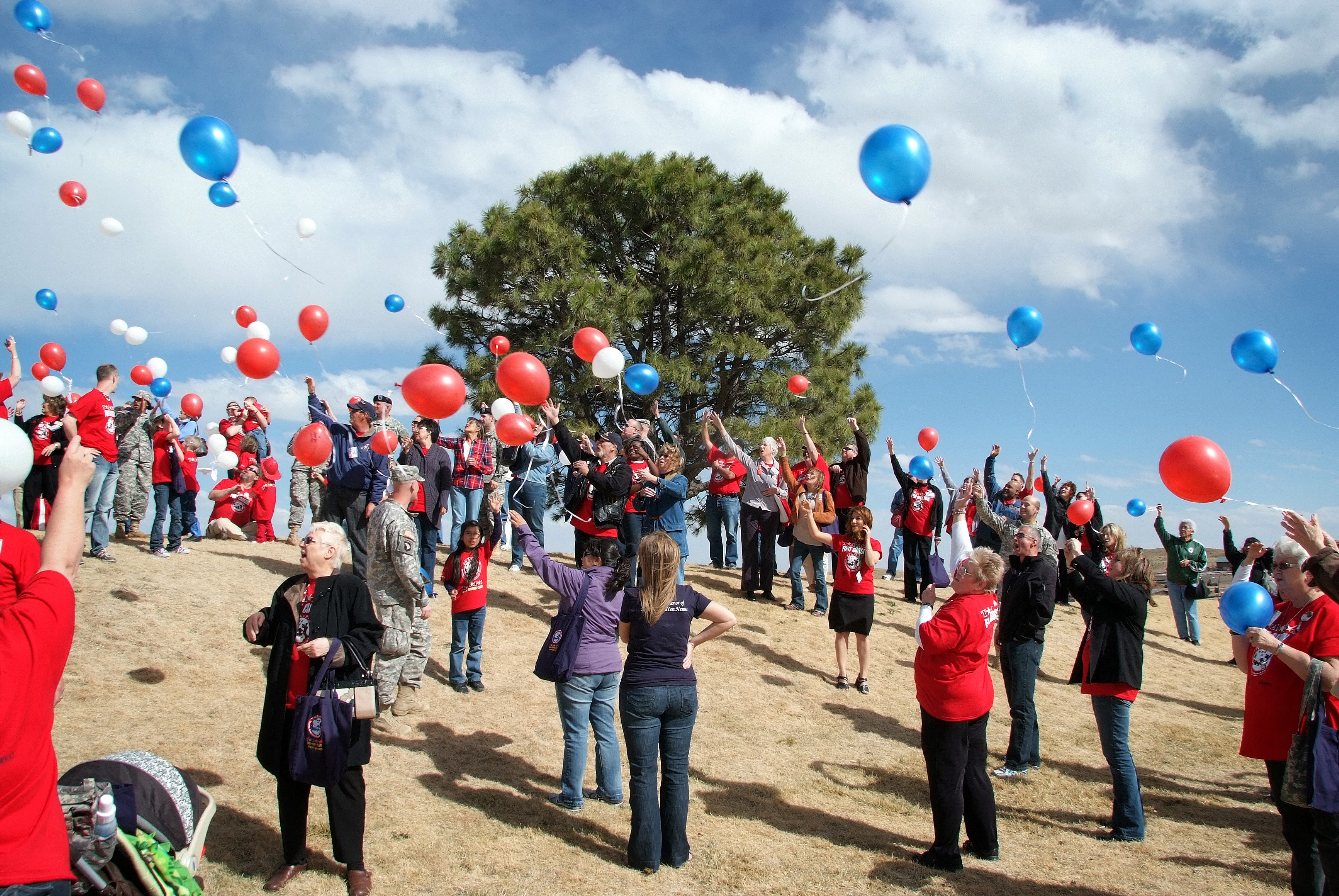
FORT CARSON, Colo. -- More than 100 survivors of loved ones lost during military service converged at Fort Carson Saturday for a peer-support seminar hosted by the Tragedy Assistance Program for Survivors.
"The leadership here at Fort Carson is very focused on taking care of Families after a death," said Kim Ruocco, TAPS Suicide Education and Outreach director. TAPS is a nonprofit organization offering emotional assistance 24/7 to anyone grieving the death of a servicemember. TriWest sponsored the Mountain Post seminar.
Family members - mostly parents, spouses and children - gathered inside the Elkhorn Conference Center. At first, guest speakers and open discussions covered grieving, such as shock, sleeplessness and guilt. After lunch, the survivors separated into small groups to further talk about their fallen heroes and the impact of their loss.
"Peer-based support is incredibly healing," said Ruocco, who lost her husband to suicide in February 2005, three months after her Marine returned home from Iraq. She said TAPS assists about 2,000 suicide survivors, out of more than 30,000 registered people.
Almost half of the 117 participants at the Fort Carson seminar had their lives altered by a combat-related death, according to Ruocco. About a dozen spoke about a suicide and others discussed a traffic accident or sudden illness.
About 30 children attended, ranging from young infants to teenagers graduating high school.
"Losing someone who is in the Armed Forces is such a different process," said Stacia Harris, while attending her first TAPS seminar since her husband's death in Afghanistan last summer. "When they deploy, you never think that's going to be the last time you see them - especially when they're so young."
Her 23-year-old husband, Marine Cpl. Larry Harris, died of wounds caused by a detonated improvised-explosive device in a firefight, she said. Her Marine was carrying an injured machine gunner to safety when the device erupted.
The high school sweethearts had been married four months.
"It helps to talk to people who know what it's like to go through the grieving process," said Harris, who sat with six other military widows during the TAPS seminar. "There's no cure for death - you can't just wake up and feel better.
"I understand not wanting to talk to people because it makes it real," she said. "The great thing about TAPS is everyone is a survivor, so they can all relate."
As a final shared gesture, everyone departed the conference center with a red, white or blue balloon inflated with helium. They stood on a nearby hill and shouted "I love you," while releasing their balloons into a powerful wind.
"It's my way of releasing my feelings," said Harris, after watching her balloon drift away. "I'm sending something into the atmosphere to let him know my love is still here. No matter what, I will never forget you and you're always in my heart."

Social Sharing